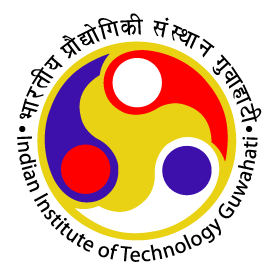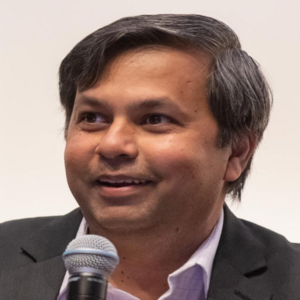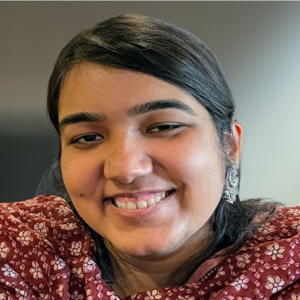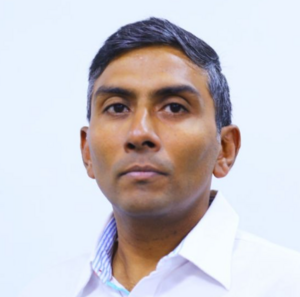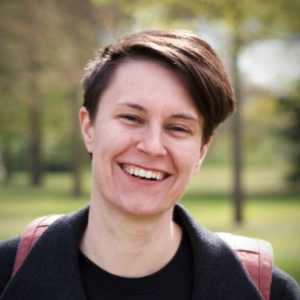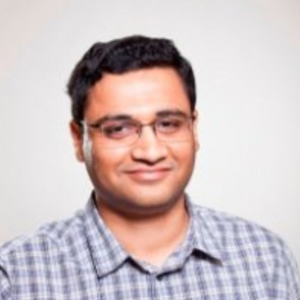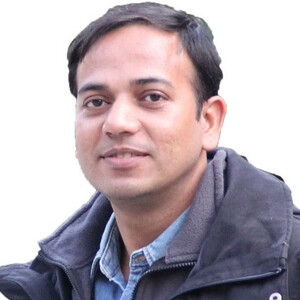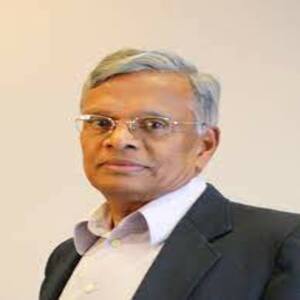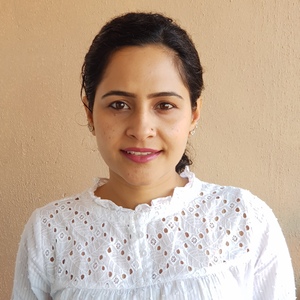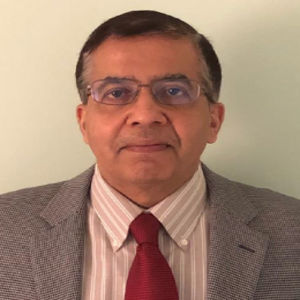- Title: From LLMs to LRMs: The Rise of Reasoning Models
- Speaker: Anil Ananthaswamy
- Affliation: Science Journalist
- Abstract: When large language models became the dominant machine learning paradigm in 2022, their performance surprised almost everyone, including many experts. LLMs showed “emergent” behavior—bigger models could do tasks that identically-trained smaller models had failed at. Empirical scaling laws suggested that models would get predictably better with increasing model size, more training data and more training-time compute. But these laws began to saturate, only for a new scaling regime to enter the picture. In this talk, Anil Ananthaswamy will chart the ongoing transition to so-called large reasoning models, which use more compute during inference and ostensibly “think” and “reason” before answering, by using extra compute to explore multiple pathways to the final answer.
- Date and Venue: 04.00-05.00 PM, 28-Nov-2025; Online; CHAI Talk Series
- Title: The Real Story of AI
- Speaker: Nisheeth Vishnoi, PhD
- Affliation: A. Bartlett Giamatti Professor of Computer Science, Yale University, USA
- Abstract: The public imagination often casts AI as a race toward “superintelligence.” This myth distorts priorities, narrows our understanding of intelligence, and erodes agency. In this talk, I will cover three key aspects of the real story of AI: debunking the superintelligence narrative, explaining what AI actually is—algorithms that extract patterns, make predictions, and optimize metrics—and exploring the ethical challenges these systems raise. The real question is not whether machines surpass us, but how our choices and institutions shape the role of AI in society. Themes are drawn from my writings in The Intelligence Loop, available here: https://nisheethvishnoi.substack.com/
- Date and Venue: 06.30-07.30 PM, 15-Oct-2025; Online; CHAI Talk Series
- Title: Emerging trends in AI/ML
- Speaker: Sri Vallabha Deevi, PhD
- Affliation: Director, Data Science, Tiger Analytics
- Abstract: AI/ML adoption by businesses is growing at a rapid pace given the impact it has demonstrated for pioneers. AI/ML brings efficiency and predictability to various functions of business like Operations, Marketing, Sales etc.Companies are exploring and deploying a range of AI/ML solutions to improve their internal processes like estimations, planning and waste reduction. This talk will discuss the practical applications of various ML algorithms, from Linear Regression to Generative AI, with real world examples.
- Date and Venue: 5:30-6:30 PM, 09-Sep-2025; Online; CHAI Talk Series
- Title: Improving Image-based Taxonomic Classification by Training with DNA Barcodes
- Speaker: Graham Taylor, PhD
- Affliation: Professor, University of Guelph, Canada
- Abstract: Recent advances in machine learning have enabled impressive results in taxonomic classification using image data alone. However, DNA barcodes provide a wealth of information about species relationships that is not always visually apparent. In this talk, I'll present our work on CLIBD and the BIOSCAN-5M dataset, which leverage multi-modal contrastive learning to improve image-based taxonomic classification by incorporating DNA barcode data during training. CLIBD extends the self-supervised learning approach of BIOCLIP to align representations of images, DNA barcodes, and taxonomic labels in a shared embedding space. Using the newly released BIOSCAN-5M dataset of over 5 million insect specimens with paired images and DNA barcodes, we show that this multi-modal training approach significantly improves zero-shot image classification performance - boosting accuracy by over 11% compared to image-only methods. Crucially, while DNA data is leveraged during training, our model enables rapid taxonomic classification using images alone at inference time. This work demonstrates the potential for integrating genetic information to enhance computer vision systems for biodiversity monitoring at scale.
- Date and Venue: 05.30-06.30 PM, 12-Jun-2025; Online; CHAI Talk Series
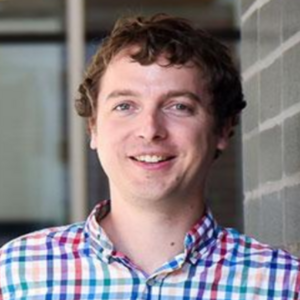
- Title: The Future of Multimodal AI Applications
- Speaker: Stefania Druga, PhD
- Affliation: Research Scientist, Google DeepMind
- Abstract: This talk will explore the practical implementation and potential of systems integrating and synthesizing information from diverse data streams - including live input from webcams, audio feeds, video, mobile sensors, and bespoke hardware. Stefania Druga will provide a researcher's perspective, diving into the technical challenges - from data fusion and latency reduction to context modeling and robust interaction design - inherent in building AI that leverages a richer understanding of the physical world. Expect compelling live demonstrations showcasing interactive AI systems designed to understand context, anticipate user needs, and respond dynamically through multi-sensory feedback loops.
- Date and Venue: 01.30-02.30 PM, 12-May-2025; Online; CHAI Talk Series
- Title: Computational and Cognitive Models of Decision Making in Natural Language
- Speaker: Sidharth Ranjan, PhD
- Affliation: Postdoctoral Researcher, Univ. of Stuttgart, Germany
- Abstract: Human languages offer a broad spectrum of word-order freedom, such that some languages, including English, have rigid word order within a sentence. In contrast, languages like Hindi, have a relatively flexible word order exhibiting multiple ways to encode the same idea. Yet, the speaker produces just one out of all the possible sequences that could express that idea. What influenced that choice? In this talk, I'll investigate how these decisions are made in Hindi and other SOV languages factoring in various constraints posited in psycholinguistics and behavioral economics literature.
First part of the talk will investigate the relative impact of the two influential theories of language comprehension, viz., Dependency Locality Theory (Gibson, 2000) and Surprisal Theory (Hale, 2001; Levy, 2008), on word ordering in Hindi. The second part of my talk will investigate the extent to which dependency locality drives ordering decisions across 7 SOV languages viz., Hindi, Japanese, Turkish, Korean, Persian, Basque, and Latin. The results align with the central ideas of bounded rationality, where decision-making is influenced by 'quick-yet-economical' heuristics rather than exhaustive searches for optimal solutions. Essentially, speakers choose word orders that minimize dependency length by employing a least-effort strategy as a fundamental mechanism. By the end of my talk, I hope to convince you that bounded rationality shapes natural languages, linguistic decision-making, and language evolution.
- Date and Venue: 05.30-06.30 PM, 28-Apr-2025; Online; CHAI Talk Series
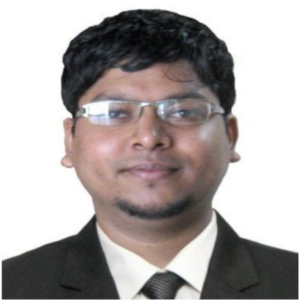
- Title: Neuromorphic Computing: Low-latency and low-power sensing and processing with events and spikes
- Speaker: Lyes Khacef, PhD
- Affliation: Senior Research Scientist, Sony, Zurich
- Abstract: The rise of mobility, IoT and wearables has shifted processing to the edge of the sensors, driven by the need to reduce latency, communication costs and overall energy consumption. While deep learning models have achieved remarkable results in various domains, their deployment at the edge for real-time applications remains computationally expensive. Neuromorphic computing emerges as a promising paradigm shift, characterized by co-localized memory and computing as well as event-driven asynchronous sensing and processing. In this talk, we will see how to solve the ubiquitous computer vision task of object detection at the edge with the SynSense Speck neuromorphic chip, which comprises both an event-based sensor and a spike-based asynchronous processor. We will see how to reduce precision discrepancies between off-chip clock-driven simulation used for training and on-chip event-driven inference which achieves face detection with an average running power of 20mW. We will further discuss the current challenges and opportunities of neuromorphic computing, from modeling to training and benchmarking.
- Date and Venue: 06.00-07.00 PM, 30-Sep-2024; Online; CHAI Talk Series

- Title: Working towards a pipeline for clinical speech AI that generalizes
- Speaker: Visar Berisha, PhD
- Affliation: Professor, College of Engineering, College of Health Solutions, Arizona State University, USA
- Abstract: The dominant paradigm in clinical speech analytics has been supervised machine learning. Despite many years of work by academic and industry research labs, and thousands of publications, the translation of techniques developed under this paradigm has been slow. The focus of this talk will be on why this is and what we can do about it. We will discuss converging evidence collected from multiple systematic reviews that the traditional supervised machine learning paradigm leads to overoptimistic estimates of how well these models actually work when deployed. Next, we will discuss an alternate approach to development of speech-based clinical tools, one that emphasizes the need for more rigorous validation frameworks and is rooted in clinically-important representations of speech. We demonstrate how this approach can be used to translate a tool for assessment of articulatory precision in patients with amyotrophic lateral sclerosis (ALS) from ideation to implementation to FDA-informed validation.
- Date and Venue: 08.00-09.00 PM, 16-Sep-2024; Online; CHAI Talk Series

- Title: Using interactivity as a tool for storytelling in data visualisation
- Speaker: Gautam Bhatia
- Affliation: Founder and Director, Revisual Labs, India
- Abstract: Interactivity in data visualization makes communication not just informative but also playful, engaging, and tailored to the audience's needs. It helps turn complex, multi-layered datasets into more digestible and relevant experiences, making it easier to absorb information and draw meaningful inferences. This talk will merge insights from UI/UX, Human-Computer Interaction, design, and perception to offer actionable tips for creating data-driven interactives. You'll learn how to create memorable, engaging elements that not only inform but also tell a story when needed.
- Date and Venue: 07.15-08.15 PM, 05-Sep-2024; Online; CHAI Talk Series
- Title: Improving Breathing Problem Detection: A New Approach for Better Patient Care
- Speaker: Navchetan Awasthi, PhD
- Affliation: Assistant Professor at University of Amsterdam, Netherlands
- Abstract: In my talk, I will discuss how we've improved the way we monitor and detect breathing problems, especially in older people who might be very sick. Right now, it's hard for machines to tell how bad these problems are, which makes it tricky for doctors to figure out what to do. So, we came up with a new way to look at all the numbers that machines measure, like how fast someone's breathing and how much oxygen is in their blood. We used fancy math to make sense of these numbers in real-time, comparing different methods to see which one works best. We tested our ideas with real patient data and found that our new method can predict how bad someone's breathing problem is pretty accurately. We'll also talk about how we can use this information to give doctors a heads-up when someone's having trouble breathing, which can help them take action earlier and hopefully make things better for the patient.
- Date and Venue: 02.00-03.00 PM, 10-May-2024; Online; CHAI Talk Series
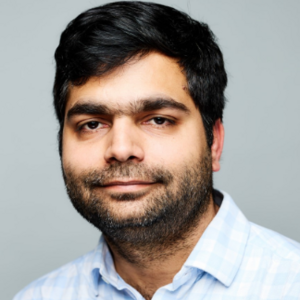
- Title: Data Science Career Prospects
- Speaker: Shakuntala Choudhury, PhD
- Affliation: Data Scientist and Adjunct Professor, Statistical Research & Consulting LLC, USA
- Abstract: The proposed lecture, titled " Data Science Career Prospects," will cover a brief overview of Data Science as a career, which is an interdisciplinary science consisting of Statistics, Computer Science, and the Economics of algorithm development in this Algorithm Economy (AE). I am confident that this topic will be of interest to the students and faculty, and I am eager to facilitate an enriching discussion on the subject as data is the new gold.
- Date and Venue: 10.00-11.00 AM, 25-Apr-2024; Core 5, IIT G
- Title: ASR and NLP are Solved Problems, Are They?
- Speaker: Aravind Ganapthiraju, PhD
- Affliation: Vice President Applied AI, Uniphore
- Abstract: ASR and NLP, the key components of any Conversational AI system have been around for decades. Transformers, ChatGPT, Claude, Llama .... all have put this space into hyper-excitement. Many even think ASR and NLP don't have many more problems left to be solved. That is far from the reality. I will talk about perception vs reality and showcase the areas of work that still have long ways to go before we claim success. The talk should open your minds to potential areas of research to pursue as well as challenges the applied AI teams solve daily to make Conversational AI truly useful and financially feasible.
- Date and Venue: 06.00-07.00 PM, 05-Apr-2024; Online; CHAI Talk Series
- Title: A Policy Gradient Algorithm for the Risk-Sensitive Exponential Cost MDP
- Speaker: Mehrdad Moharrami, PhD
- Affliation: Assistant Professor at University of Iowa, USA
- Abstract: We study the risk-sensitive exponential cost MDP formulation and develop a trajectory-based gradient algorithm to find the stationary point of the cost associated with a set of parameterized policies. We derive a formula that can be used to compute the policy gradient from (state, action, cost) information collected from sample paths of the MDP for each fixed parameterized policy. Unlike the traditional average-cost problem, standard stochastic approximation theory cannot be used to exploit this formula. To address the issue, we introduce a truncated and smooth version of the risk-sensitive cost and show that this new cost criterion can be used to approximate the risk-sensitive cost and its gradient uniformly under some mild assumptions. We then develop a trajectory-based gradient algorithm to minimize the smooth truncated estimation of the risk-sensitive cost and derive conditions under which a sequence of truncations can be used to solve the original, untruncated cost problem.
- Date and Venue: 06.30-07.30 PM, 23-Jan-2024; Online
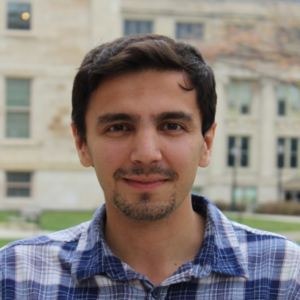
- Title: Data Science, Artificial Intelligence, and Society: Adapting to a rapidly changing world
- Speaker: Nandini Kannan, PhD
- Affliation: Dean Academics and Director, Data Science Institute at Plaksha University, India
- Abstract: The explosion in the use of AI and Data Science tools and technologies is disrupting and transforming every aspect of our lives. While Generative AI, in particular ChatGPT, has captured our collective imagination, there are both opportunities and risks that need to be addressed while implementing these tools. How will these emerging technologies impact the workforce of the future and how do academic institutions ensure they are training students who are prepared for these new careers? Data Science and AI programs need to adapt and evolve in this rapidly changing world, while ensuring students have strong foundational knowledge in mathematics, statistics, and computer science. It is also important for students to have expertise in science, engineering, medical, or social sciences through data-intensive projects, internships, or research experiences. Data Science and AI will play a critical role in addressing some of the biggest challenges facing our society such as climate change, healthcare, sustainability, and education. To ensure equitable and responsible innovation, issues related to fairness, privacy, bias, and explainability must be integrated into the curriculum. I will share some insights about transdisciplinary training, emerging areas of research, and curriculum. Agility and Adaptability are key to relevance in this new world!
- Date and Venue: 06.00-07.00 PM, 05-Jan-2024; Core 5, IIT G
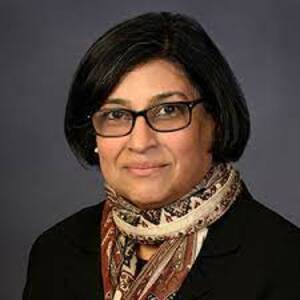
- Title: IoT Data Analysis: Learning and Anomaly Detection
- Speaker: Nalini Ravishanker, PhD
- Affliation: Professor at University of Connecticut, USA
- Abstract: Data Science is now being offered as an academic program in many colleges and universities, both at the undergraduate and graduate levels. What is the take-away for students enrolled in these programs to be well prepared for the workforce? We can discuss the preparation from trained data scientists that the workplace expects, using as an illustration a project on analyzing IoT temperature streams that involved teams from Statistics and Computer Science at UConn and data analysts and engineers at The Hartford Steam Boiler (HSB), an insurance/reinsurance firm in Hartford, CT. The company uses temperature sensor nodes to monitor temperatures for thousands of institutional buildings across the United States to prevent pipe-freeze losses to its customers. For this to happen, it is essential to automate the prediction/detection of anomalies in the temperature sensor readings. We describe a customized hybrid approach based on an isolation forest (IF) algorithm for anomaly detection, predicting pipe-freeze, and notifying its customers. We also discuss how the company can use a statistical model based approach to learn from the observed data whether a customer is likely to have taken action to prevent potential pipe freeze. This is joint research involving faculty and graduate students in Statistics and Computer Science along with domain experts from the firm.
- Date and Venue: 06.00-07.00 PM, 04-Jan-2024; Core 5, IIT G

- Title: Pixels with Purpose: Revolutionizing Imaging RADARS through Signal Processing and Machine Learning
- Speaker: Sai Gunaranjan Pelluri
- Affliation: Staff Engineer at Renesas Electronics Corporation, India
- Abstract: In the dynamic landscape of applications such as autonomous driving, traffic monitoring, and surveillance, the indispensability of Imaging RADARs has surged. Renowned for their exceptional detection accuracy and resolution, these devices play a pivotal role in safeguarding privacy. Beyond their conventional role as 4-D imaging tools, Imaging RADARs excel in precisely detecting range, Doppler, and direction-of-arrival (in both Azimuth and Elevation). In this talk, I will unravel the transformative journey of Imaging RADARs, where the backbone is formed by foundational signal processing (such as FFT, Kalman Filters) and machine learning algorithms (such as clustering and NNs). A convergence of cutting-edge IC technology, powerful MIMO antenna arrays, and robust signal processing and ML algorithms in Imaging RADAR designs is ensuring precision in estimation of fundamental parameters like range and direction while simultaneously unlocking a new frontier of capabilities, facilitated by comprehensive object classification.
- Date and Venue: 03.00-04.00 PM, 29-Dec-2023; Room 5G2, Core 5, IIT G; CHAI Talk Series
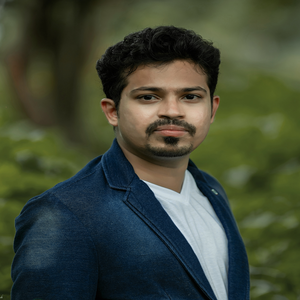
- Title: Challenges for automated applications and solutions
- Speaker: Prashant W. Patil, PhD
- Affliation: Assistant Professor at Indian Institute of Technology Guwahati, India
- Abstract: The automated applications like video surveillance, traffic monitoring, autonomous driving demand good quality of recorded images or videos. Also, these applications routinely involve the sub-tasks such as object detection/segmentation, activity recognition, depth estimation, scene understating. However, the recorded data may be affected by various factors like bad weather, poor visibility, shadow, infrequent object motion, dynamic object motion, etc. Therefore, the recorded data must be pre-processed before giving to above mentioned sub-tasks. Current research achieved superior performance for the sub-tasks like object detection, activity recognition with considering all the challenges except bad weather. In this seminar, we will discuss the challenges for day-night time bad-weather conditions and some probable solutions to handle these conditions.
- Date and Venue: 05.00-06.00 PM, 09-Nov-2023; Room 5001, Core 5, IIT G
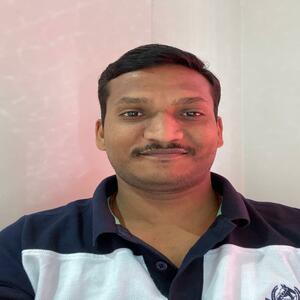
- Title: Who's that? Person perception from voices
- Speaker: Nadine Lavan, PhD
- Affliation: Lecturer at Queen Mary University of London, UK
- Abstract: Listeners can readily make judgements about the identity, personality traits, physical characteristics, and social status of a person. In this talk, I will first discuss how listeners perceive voice identity, testing the limits of voice identity perception from familiar and unfamiliar voices. I will also discuss how we as listeners form complex impressions based on unfamiliar voices, and explore how much (or little) information we need to perceive various personality traits, physical and social characteristics of people from voices.
- Date and Venue: 06.00-07.00 PM, 07-Nov-2023, Online; CHAI Talk Series
- Title: Automating biodiversity monitoring using soundscapes
- Speaker: Sarab Sethi, PhD
- Affliation: Lecturer at Imperial College London, UK
- Abstract: Human pressures are causing ecosystems around the world to change at an increasing rate. Accurate and large-scale monitoring of these changes is necessary, yet traditional survey techniques are often taxonomically focussed, laborious, or scale poorly. In this talk we will explore how AI-driven analyses of ecosystem soundscapes can provide a route to fully automating biodiversity monitoring. We will demonstrate how CNN-derived feature embeddings allow us to track and predict spatial and temporal patterns in species communities across biomes. This approach will be built on to demonstrate how acoustic monitoring can allow us to predict species occurrences in tropical forests, even where the species are silent. We will finally explore the generalisability (or lack thereof) of soundscape monitoring, and what the key challenges for the field going forward are.
- Date and Venue: 05.00-06.00 PM, 18-Oct-2023, Online; CHAI Talk Series

- Title: Making ordinary cameras extraordinary
- Speaker: Srinivasa Narasimhan, PhD
- Affliation: Assistant Professor at Carnegie Mellon Univesity, USA
- Abstract: The convergence of computations with optics and imaging that started a few decades ago has created high quality, high dynamic range, low-light, and high-resolution images and videos and are in all our smart-phones today. In this talk, I will summarize current research that combines computing with existing CMOS sensors and has the potential to, quite simply, change what it means to be a camera. I will show cameras with extraordinary abilities that can see beyond the line of sight, see deep beneath the skin, see audio and mechanical vibrations, see better in poor weather and murky waters, see beneath the surface of crops, and much more. Much like the research during 1990-2010 transformed personal photography, current computational imaging research has the potential to impact many domains including healthcare, transportation, robotics and agriculture.
- Date and Venue: 07.00-08.00 PM, 11-Oct-2023, Online; CHAI Talk Series

- Title: From Education to Innovation: Navigating the data science and AI landscape
- Speaker: Kaustabh Singh, PhD
- Affliation: Alumnus IIT G, and Product Manager at Amazon, NY, USA
- Abstract: Kaustubh Singh has worked at Nvidia and Amazon, and has vast global experience in the technology industry. In this talk, Kaustubh Singh will take us through his journey with a focus on the opportunities in the domain of data science and artificial intelligence. He will dive into how his education enabled him to grab the opportunities and innovate in his career. He will go over the evolution of career paths in the tech industry including the role of product management.
- Date and Venue: 06.00-07.00 PM, 06-Oct-2023, Online; Industry Talk Series
- Title: Modeling language from raw speech with GANs
- Speaker: Gasper Begus, PhD
- Affliation: Assistant Professor at University of California Berkeley, USA
- Abstract: In this talk, I propose that language can be modeled from raw speech data in a fully unsupervised manner with Generative Adversarial Networks (GANs) and that such modeling has implications both for the understanding of language acquisition and for the understanding of how deep neural networks learn internal representations. I propose an extension of the GAN architecture (fiwGAN) in which meaningful linguistic properties emerge from two networks learning to encode and decode information. FiwGAN captures the perception-production loop of human speech and, unlike most other deep learning architectures, has traces of communicative intent. I further propose a technique to identify latent variables in deep convolutional networks that represent linguistically meaningful units in a causal, disentangled, and interpretable way. We can thus uncover symbolic-like representations at the phonetic, phonological, syntactic and lexical semantic levels, analyze how learning biases in GANs match human learning biases in behavioral experiments, how speech processing in the brain compares to intermediate representations in deep neural networks, and what GANs’ innovative outputs can teach us about productivity in human language.
- Date and Venue: 10.00-11.00 AM, 13-Sep-2023, Online; CHAI Series

- Title: Are you from North or South India? Analyzing systematic representational differences between humans and machines
- Speaker: Harish Katti, PhD
- Affliation: Research Fellow at National Institute of Mental Health (NIMH), USA
- Abstract: This talk explores the process of forming rapid and consistent first impressions from new faces, a fundamental aspect of human vision that shapes social interactions. It delves into the information extracted for judgments and investigates whether AI algorithms follow similar strategies. The investigation uncovers insights into the complex process of face classification and its implications for both human and AI vision systems, highlighting the value of studying challenging classification tasks. By utilizing both behavioral and computational methods, the study addresses the underlying features used for face judgments. The research introduces a complex geographical-origin classification challenge to understand feature representations in humans and AI algorithms. In Experiment 1, a diverse collection of 1,647 Indian faces was categorized by both humans and machine vision algorithms. While many algorithms matched human performance (64%), their error patterns varied significantly. The study also identified mouth shape as the most distinguishing facial part for human classification, surpassing eyes, nose, and external contour. Experiment 2 further confirmed mouth shape's significance through classifications of partially occluded faces. Experiment 3 revealed that humans rely more on generic features when processing inverted faces, as computational models better predicted human performance on inverted faces compared to upright faces. A key figure from this study comparing human behavior and many AI models made it to the cover of Journal of Vision, Vol 19(7) 2019 issue.
- Date and Venue: 08.00-09.00 PM, 12-Sep-2023, Online; CHAI Series
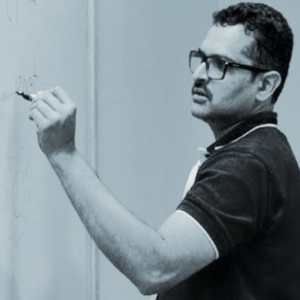
- Title: Understanding climate variability with statistical machine learning and artificial intelligence
- Speaker: Bedartha Goswami, PhD
- Affliation: Group Leader at Univerisity of Tubingen, Germany
- Abstract: Recent years have seen a boom in the application of statistical machine learning and deep learning methods to tackle problems in meteorology and climate science. In this talk, I will present three projects ongoing in my group that use machine learning concepts to understand climate variability. I will show how we can use similarity-based networks of climate time series data to reveal new features of intraseasonal variability of extreme rainfall propagation over South Asia in the summer that might potentially be useful for early warning systems of extreme monsoonal rain. I will next present how we can use principal component analysis in combination with Gaussian Mixture Models to categorize extreme phases of the El Niño Southern Oscillation (ENSO) and show how the Eastern Pacific El Niño is better modeled as two separate categories: a weaker 'canonical' form and an extreme El Niño, both of which show distinct idiosyncratic onset and development. Last, I will present how we can leverage deep learning to develop purely data-driven models for subseasonal-to-seasonal forecasting of the ENSO that are at par with state-of-the-art physics based weather prediction models. Finally, we will briefly talk about what these recent developments mean for understanding and modelling climate variability over the Indian subcontinent.
- Date and Venue: 12.00-01.00 PM, 21-Aug-2023, Core-5 (5001); CHAI Series
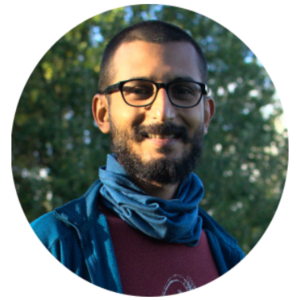
- Title: Revisiting the Economics of Large Language Models with Neural Scaling Laws and Dynamic Sparsity
- Speaker: Anshumali Shrivastava, PhD
- Affliation: Assoc. Professor at Rice University, USA
- Abstract: Neural Scaling Law informally states that increased model size and data automatically improve AI. However, we have reached a point where the growth has reached a tipping end where the cost and energy associated with AI are becoming prohibitive. This talk will demonstrate the algorithmic progress that can exponentially reduce the compute and memory cost of training and inference using "dynamic sparsity" with neural networks. Dynamic sparsity, unlike static sparsity, aligns with Neural Scaling Laws and does not reduce the power of neural networks while reducing the number of FLOPS required by neural models by 99% or more. We will show how data structures, particularly randomized hash tables, can be used to design an efficient "associative memory" that reduces the number of multiplications associated with the training of the neural networks. Current implementations of this idea challenge the common knowledge prevailing in the community that specialized processors like GPUs are significantly superior to CPUs for training large neural networks. The resulting algorithm is orders of magnitude cheaper and energy-efficient. Our careful implementations can train billions of parameter recommendations and Language models on commodity desktop CPUs significantly faster than top-of-the-line TensorFlow alternatives on the most potent A100 GPU clusters, with the same or better accuracies. We will show some demos, including how to train and fine-tune (with rhfl) a billion-parameter language model on a laptop from scratch for search, discovery, and summarization.
- Date and Venue: 8.30-9.30 PM, 17-Aug-2023, Online
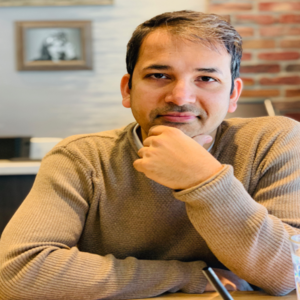
- Title: Making Food Computable
- Speaker: Ganesh Bagler, PhD
- Affliation: Professor at IIIT Delhi, India
- Abstract: Cooking is an art. Besides being the basis of nutrition and health, culinary idiosyncrasies are at the core of our cultural identity. Combining and processing raw ingredients to compose delicious dishes is a creative act. However, the increasing availability of data and the advent of computational methods for their scrutiny are dramatically changing the artistic outlook toward gastronomy. The application of data-driven strategies for investigating gastronomic questions has created an all-new paradigm for studying food and cooking. Computational Gastronomy asks questions of culinary origin to seek answers via a structured compilation of data and their analysis. Making food computable will enable data-driven innovations and transform the global food landscape to achieve better public health and nutrition toward a sustainable future.
- Date and Venue: 6-7 PM, 04-Aug-2023, Online; CHAI Series

- Title: Constrained Estimation and Control
- Speaker: Prabhat K. Mishra, PhD
- Affliation: Post-doctoral Associate at Massachusetts Institute of Technology, USA
- Abstract: Environmental uncertainties are unavoidable in practice and their worst-case bounds are generally unknown. On the other hand, actuators have hard limits to mechanically or electrically manipulate the variables of interest. This talk presents a computationally tractable approach to implement optimal control algorithms in the presence of bounded actions for systems with limited computational power. In particular, we employ a remote server to solve the underlying optimization problems in a receding horizon fashion and transmit the optimal actions through wireless channels. We shall discuss the key ingredients to design the algorithm, implementation issues and conclude with some data-driven extensions.
- Date and Venue: 5-6 PM, 25-May-2023, Online; CHAI Series
- Title: Search for the Design Principles in Biology
- Speaker: Biplab Bose, PhD
- Affliation: Professor at Indian Institute of Technology Guwahati, India
- Abstract: Once upon a time, Biology was a 'descriptive' subject. We gathered information on different organisms and arranged those systematically. However, Biochemistry and Molecular Biology revolutionized Biology. Now we detect, quantify and manipulate molecules within living systems. Using high-throughput techniques, Biologists are now generating a humongous amount of information. However, information alone is not helpful. We must distill that to develop scientific 'Theories' and 'Laws.' Over decades, scientists across disciplines have attempted to fill this void. They borrowed methods and concepts from Physics and Engineering to understand the "Generalised Design Principles" in living beings. In my talk, I will focus on this approach to Biology. I will argue that the 'Devil' is not in the details of empirical observations but in the underlying physical rules that work across the living and non-living world. I will use examples from different biological phenomena, like gene regulatory circuits and morphogenesis. I will show how simple physical rules and mathematical models help us to understand diverse, complex phenomena in biology.
- Date and Venue: 5-6 PM, 21-Apr-2023, Room 5101; CHAI Series
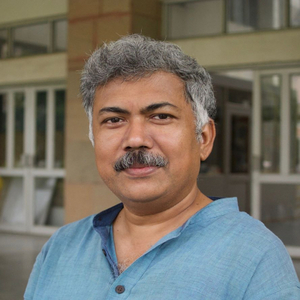
- Title: Low-Resource Machine Translation
- Speaker: Pushpak Bhattacharyya, PhD
- Affliation: Professor at Indian Institute of Technology Bombay, India
- Abstract: This talk will address multilingual computation, focusing on Machine Translation (MT), in a low-resource setting. Tasks in this area have to grapple with the characteristic problem of disambiguation in the face of resource scarcity, which is the reality for most languages and also arguably for ANY language when it comes to very high-end NLP tasks like, say, 100% disambiguation as demanded by pure interlingua-based MT. Starting with our early work on rule-based MT, we move to our research in Low Resource Machine Translation, covering SMT, NMT, segmenting, pivoting, and semi and unsupervised MT. The findings covered in this talk are based on contributions by many students and researchers over many years, reported in top conferences and journals.
- Date and Venue: 3-4 PM, 18-Apr-2023, Mini-Auditorium
- Title: The Science of Reading Minds: Analyzing Functional Brain Images
- Speaker: Ananth Grama, PhD
- Affliation: Professor at Purdue University, USA
- Abstract: Rapid advances in neuroimaging have resulted in large repositories of images with high temporal and spatial resolution. This has motivated complex connectomic analyses aimed at understanding representation and processing of stimuli . Such analyses require novel computational tools that significantly extend the state-of-the-art in machine learning and data science. These studies have far-reaching implications for the fields of precision psychiatry, behavioural analysis, and neurodegeneration, in addition to applications in AR/VR and advanced human interfaces. In this talk, I will discuss recent work in our group on understanding neuronal response to naturalistic visual stimulus -- I present two methods based on archetypal analysis and deep learning to: (a) find interpretable representations of fMRI response, (b) predict objects in visual frames, and (c) reconstruct visual inputs. I will also briefly describe computational methods to characterize individual-level uniqueness of functional connectomes. I will present methods based on matrix sampling, graph alignment, and linear algebraic techniques to accurately identify the identity of individuals, and the nature of the cognitive task being performed. I will conclude my talk by highlighting the immense significance and challenges posed by problems in the field of neuroimage analyses.
- Date and Venue: 9-10 PM, 25-Jan-2023, Online
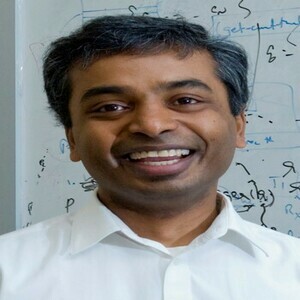
- Title: Mathematics of Big Data Analysis
- Speaker: S. Lakshmivarahan, PhD
- Affliation: Professor at Univ. Oklahoma, USA
- Abstract: The qualifier Big in "Big Data" analysis refers to either to the size - number of data items or the dimension of the representation of the data item or both being large. This talk will explore the differences between geometrical properties - volume, distance, and probability measure, in low and high dimensional spaces and their impact on the analysis of big data problems.
- Date and Venue: 6-7 PM, 16-Jan-2023, Mini-Auditorium
- Title: Physiological factors underlying Parkinson's Disease
- Speaker: Poonam Thakur, PhD
- Affliation: Assistant Professor at IISER Thiruvananthapuram
- Abstract: Parkinson’s disease is associated with α-synuclein aggregation
and progressive loss of substantia nigra dopaminergic neurons (SN DA-neurons).
Precise mechanism(s) behind selective vulnerability of SN DA-neurons to
α-synuclein aggregation in comparison to ventral tegmental area (VTA) DA neurons
is not known. Even within SN, DA-neurons in ventro-lateral tier degenerate
earlier and to a larger extent compared to the neurons in dorso-medial tier. We
used patch clamp electrophysiology to determine the basis for these differences.
In my talk, I will walk you through the interesting molecular mechanisms behind
this process.
- Date and Venue: 2:30 PM, 12-Dec-2022, Room 5001, Core-5
- Title: Deep Extreme Mixture Model for Time Series Forecasting
- Speaker: Sahely Bhadra, PhD
- Affliation: Assistant Professor at IIT Palakkad
- Abstract: Time Series Forecasting (TSF) has been a topic of extensive
research, which has many real-world applications such as weather prediction,
stock market value prediction, traffic control etc. Many machine learning models
have been developed to address TSF, yet, predicting extreme values remains a
challenge to be effectively addressed. Extreme events occur rarely, but tend to
cause a huge impact, which makes extreme event prediction important. Assuming
light tailed distributions, such as Gaussian distribution, on time series data
does not do justice to the modeling of extreme points. To tackle this issue, we
develop a novel approach towards improving attention to extreme event
prediction. Within our work, we model time series data distribution, as a
mixture of Gaussian distribution and Generalized Pareto distribution (GPD). In
particular, we develop a novel Deep eXtreme Mixture Model (DXtreMM) for
univariate time series forecasting, which addresses extreme events in time
series. The model consists of two modules: 1) Variational Disentangled
Auto-encoder (VD-AE) based classifier and 2) Multi-Layer Perceptron (MLP) based
forecaster units combined with Generalized Pareto Distribution (GPD) estimators
for lower and upper extreme values separately. VD-AE Classifier model predicts
the possibility of occurrence of an extreme event given a time segment, and
forecaster module predicts the exact value. Through extensive set of experiments
on real-world datasets we have shown that our model performs well for extreme
events and is comparable with the existing baseline methods for normal time step
forecasting.
- Date and Venue: 6:15 PM, 24-Nov-2022, Mini-Auditorium
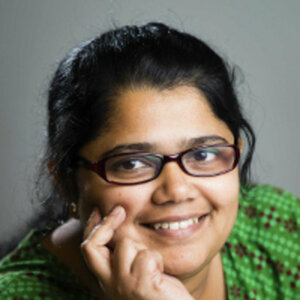
- Title: Learning with Domain Knowledge to Develop Justifiable
Convolutional Networks
- Speaker: Mrinal
Dasr, PhD
- Affliation: Assistant Professor at IIT Palakkad
- Abstract: The inherent structure of the Convolutional Neural Networks
(CNN) allows them to extract features that are highly correlated with the
classes while performing image classification. However, it may happen that the
extracted features are merely coincidental and may not be justifiable from a
human perspective. For example, from a set of images of cows on grassland, CNN
can erroneously extract grass as the feature of the class cow. There are two
main limitations to this kind of learning: firstly, in many false-negative
cases, correct features will not be used, and secondly, in false-positive cases
the system will lack accountability. There is no implicit way to inform CNN to
learn the features that are justifiable from a human perspective to resolve
these issues. In this paper, we argue that if we provide domain knowledge to
guide the learning process of CNN, it is possible to reliably learn the
justifiable features. We propose a systematic yet simple mechanism to
incorporate domain knowledge to guide the learning process of the CNNs to
extract justifiable features. The flip side is that it needs additional input.
However, we have shown that even with minimal additional input our method can
effectively propagate the knowledge within a class during training. We
demonstrate that justifiable features not only enhance accuracy but also demand
less amount of data and training time. Moreover, we also show that the proposed
method is more robust against perturbational changes in the input images.
- Date and Venue: 5:30 PM, 24-Nov-2022, Mini-Auditorium

- Title: Nuclear plant data analysis for building probabilistic risk
analysis models
- Speaker: Mahesh Pandey, PhD
- Affliation: Professor at
University of Waterloo, Canada
- Abstract: On providing insights into how application of data science is
becoming a necessity to build understanding about data captured from numerous
sensors installed in nuclear plants.
- Date and Venue: 3:00 PM, 09-Sep-2022, Seminar Room, CCC
